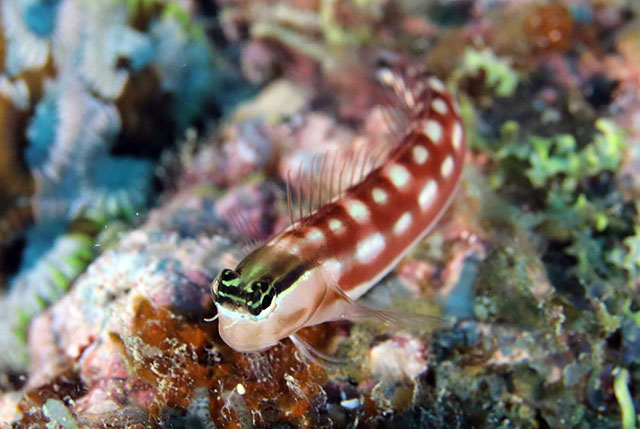| Blenniidae (Combtooth blennies), subfamily: Salariinae |
| 6 cm TL (male/unsexed) |
|
reef-associated; marine |
| Western Pacific: northern Great Barrier Reef. |
|
Dorsal spines (total): 12-12; Dorsal soft rays (total): 13-15; Anal spines: 2-2; Anal soft rays: 15-17. Dorsal fin XIL13-15 (typically 14), deeply notched between spinous and segmented-ray portions. Anal fin II,15-17 (usually 16). Pectoral fin 13 or 14 (rarely 14). Caudal fin 13. Vertebrae 10 + 21-23 (usually 22). Dentary incisor teeth 44-51 which includes anterior canine teeth very similar in appearance with incisors; posterior canines usually one on each side. Lateral line without vertical pairs of pores, terminating posteriorly at point between verticals from
dorsal-fin spines 10 and 12. With cirrus on posterior rim of anterior nostril; absent on anterior rim. |
| Oviparous. Eggs are demersal and adhesive (Ref. 205), and are attached to the substrate via a filamentous, adhesive pad or pedestal (Ref. 94114). Larvae are planktonic, often found in shallow, coastal waters (Ref. 94114). |
|
Least Concern (LC); Date assessed: 24 March 2009 Ref. (130435)
|
| harmless |
Source and more info: www.fishbase.org. For personal, classroom, and other internal use only. Not for publication.

